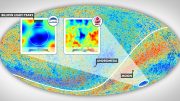
Researchers from Nagoya University found that children genetically predisposed to ASD spend more time on screens, while ADHD children increase screen time as they age. Extended screen time might be an early ASD indicator, not its cause.
Researchers from the Graduate School of Medicine at Nagoya University in Japan have studied screen time habits among children with autism spectrum disorder (ASD) and ADHD. “Screen time” is the term used to describe the duration someone spends on electronic devices, including smartphones, computers, TVs, or gaming consoles.
Their findings revealed that children genetically predisposed to ASD tend to spend more time on screens. On the other hand, children with ADHD showed an increase in screen time as they aged, regardless of their initial screen usage. These findings were recently published in the journal Psychiatry Research.
Increased Screen Time Among Children
People are increasingly spending their time looking at the screens of their digital devices. This is especially true for children with neurodevelopmental disorders who tend to use screens for longer periods.
Recognizing this issue, researchers from Nagoya University and Hamamatsu University examined 6.5 million polymorphisms in 437 children’s DNA to determine genetic susceptibility to ASD and ADHD. Next, they calculated a genetic risk index that considers the number and size of the effects of changes in genes associated with ASD/ADHD. This is known as a “polygenic risk score”. The researchers then compared it with the amount of time spent using screens devices among a sample of children aged 18, 32, and 40 months.
Findings and Implications
They found that children with a higher genetic susceptibility to ASD used devices with screens longer (3 hours a day or 4+ hours a day) from early childhood. They also found that kids with a high genetic risk of ADHD gradually increased their screen time as they grew older.
The lead researcher, Dr. Nagahide Takahashi of Nagoya University, explained: “Overall, those with a genetic risk of ASD were 1.5 times more likely to be in the group with about three hours of screen time per day, and 2.1 times more likely to be in the group with more than four hours of screen time.”
“While long periods of screen time in childhood have been suggested to be a cause of ASD/ADHD, the results of this study suggest that some people may have a genetic disposition to use screens because of ASD,” he said. “Screen time may be an early sign of ASD, rather than a cause, as children with ASD are often more attracted to objects than people. Physicians should know that it is not fair to conclude that prolonged screen time is a risk factor for the development of ASD.”
Recommendations and Cautionary Advice
Takahashi also cautions against overexposing children with ADHD to device screens. “Our results suggest that children at risk of ADHD are at risk of having too much screen time, especially since gaming addiction is common. As screen time tends to be longer for children who are particularly susceptible to ADHD, parents and caregivers should be cautious about it and make a commitment before it becomes a problem.”
These results may also help parents devise better child-rearing strategies. “Parents of children with neurodevelopmental disorders may feel guilty or be criticized by others for allowing their children screen time,” Takahashi said. “However, we would recommend offering help to caregivers including offering alternative behavioral management strategies.”
Reference: “The association between screen time and genetic risks for neurodevelopmental disorders in children” by Nagahide Takahashi, Kenji J. Tsuchiya, Akemi Okumura, Taeko Harada, Toshiki Iwabuchi, Md Shafiur Rahman, Hitoshi Kuwabara, Yoko Nomura and Tomoko Nishimura, 2 August 2023, Psychiatry Research.
DOI: 10.1016/j.psychres.2023.115395









Be the first to comment on "Is Screen Time a Symptom or a Cause of Autism? New Study Sheds Light"